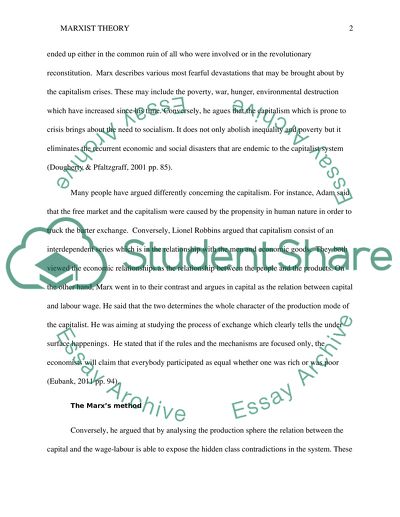Cite this document
(“Marxist theory Essay Example | Topics and Well Written Essays - 1250 words”, n.d.)
Retrieved from https://studentshare.org/history/1460984-marxist-theory
Retrieved from https://studentshare.org/history/1460984-marxist-theory
(Marxist Theory Essay Example | Topics and Well Written Essays - 1250 Words)
https://studentshare.org/history/1460984-marxist-theory.
https://studentshare.org/history/1460984-marxist-theory.
“Marxist Theory Essay Example | Topics and Well Written Essays - 1250 Words”, n.d. https://studentshare.org/history/1460984-marxist-theory.


